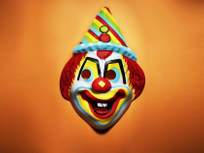Word of the Day
: April 27, 2014inkhorn
playWhat It Means
: ostentatiously learned : pedantic
inkhorn in Context
Richard's use of inkhorn terminology in his paper didn't impress his professor, whereas simple language demonstrating a clear understanding of the material would have done the trick.
"It was not until the 18th century that dictionary-makers began to include everyday words and weed out the weighty-sounding inkhorn terms." - From an article by Faye Carney in The Times Educational Supplement, September 23, 2005
Did You Know?
Picture an ancient scribe, pen in hand, a small ink bottle made from an animal's horn strapped to his belt, ready to record the great events of history. In 14th-century England, such ink bottles were dubbed (not surprisingly) "inkhorns." During the Renaissance, learned writers often borrowed words from Latin and Greek, eschewing vulgar English alternatives. But in the 16th century, some scholars argued for the use of native terms over Latinate forms, and a lively intellectual debate over the merits of each began. Those who favored English branded what they considered ostentatious Latinisms "inkhorn terms" after the bottles carried by scholars, and since then we have used "inkhorn" as an adjective for Latinate or pretentious language.
Test Your Memory
What former Word of the Day has 3 letters and can mean "longing" or "craving"? The answer is …
More Words of the Day
-
Apr 26
homage
-
Apr 25
tendentious
-
Apr 24
burgeon
-
Apr 23
exodus
-
Apr 22
palpable
-
Apr 21
noblesse oblige











